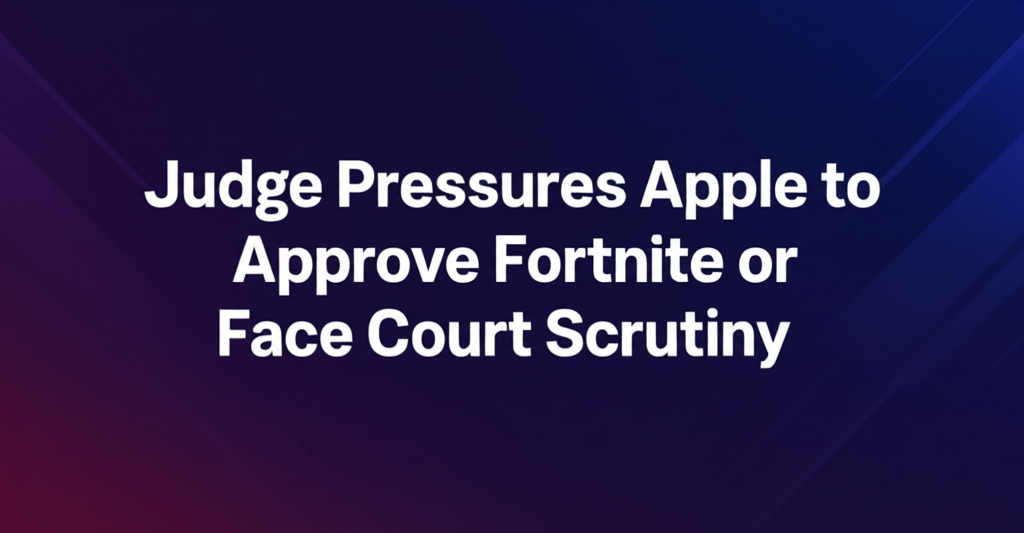Format Boy: The 'Scamfluencer' Teaching Yahoo Boys AI and Deepfake Tricks
As soon as Format Boy answers the phone, his voice is instantly recognizable. For weeks, I had immersed myself in the digital footprint of this unusual online personality – his videos, his voice notes, his posts across various platforms. Format Boy isn't your typical influencer chasing brand deals or motivational speaking gigs. His niche is far darker: he teaches his audience how to execute sophisticated, high-paying online scams.
Operating under the moniker "Format Boy" across platforms like YouTube, Telegram, Instagram, and X (formerly Twitter), he has cultivated a significant following, garnering thousands of subscribers and hundreds of thousands of views. His primary audience and beneficiaries are the Yahoo Boys, a notorious collective of West African cybercriminals, predominantly young men, known for their online fraud operations.
These scammers typically work from Nigeria, using phones and laptops to target and defraud wealthy individuals, often in the US, UK, and other Western countries. Their methods are less about technical hacking prowess and more about skillful social engineering – building elaborate, often months-long, relationships with victims before extracting money. The consequences for victims can be devastating, ranging from significant financial loss to severe emotional distress, and in tragic cases, even suicide following blackmail and sextortion.
The landscape of Yahoo Boy scams is constantly evolving, and Format Boy is at the forefront of integrating new technologies. A recent, alarming development highlighted in his content is the use of face-swapping and deepfake technology. This allows scammers to impersonate others convincingly during video calls or create fake media, such as the disturbing trend of posting fabricated CNN broadcasts with AI-generated newscasters to pressure blackmail victims into compliance.
The Language and Culture of Yahoo Boys
To understand the world Format Boy operates in, one must first grasp the unique terminology and culture of the Yahoo Boys. This specialized language serves not only as a form of in-group communication but also potentially helps them evade detection and moderation on social media platforms.
- Clients: This is the term used for victims. Dehumanizing the target is a common psychological tactic in many forms of exploitation.
- Bombing: A mass messaging technique where hundreds or thousands of online accounts are contacted simultaneously, hoping for a response that can be exploited.
- Formats: The term for the scams themselves. Each type of scam has a specific "format" or script.
These "formats" are highly varied and adaptable. They include:
- Romance/Dating Formats: Building romantic or intimate relationships online to solicit money or gifts.
- Impersonation Scams: Pretending to be figures of authority (cops, FBI officials) or celebrities (like Elon Musk) to demand money or information.
- Investment Scams: Promising high returns on fake investment opportunities.
- Gift Card Scams: Requesting payment in the form of gift cards, which are difficult to trace.
- And many others, including inheritance scams, lottery scams, and more.
Scripts for these formats are widely shared within the community. Documents like "50 Questions to Ask Your Client as a Yahoo Boy" circulate online, providing ready-made conversation flows designed to build rapport and extract information or money.
Beyond the technical aspects, there's a strong "hustle culture" surrounding the Yahoo Boys. Social media is rife with images of scammers posing with luxury cars, designer clothing, and expensive jewelry, projecting an image of success and wealth derived from their illicit activities. Hundreds of online pages and groups explicitly use "Yahoo" in their names, openly advertising themselves as mentors, trainers, and providers of tools for aspiring scammers. This creates a perverse ecosystem where cybercrime is not just tolerated but celebrated and actively promoted as a path to prosperity.
Format Boy: The Architect of Digital Deception
Format Boy stands out as one of the most visible, or at least least discreet, figures in this "scamfluencer" landscape. His content is frequently flagged by cybersecurity researchers who monitor Yahoo Boy activities. His most popular YouTube videos, for instance, are tutorials on creating deepfakes and fake video calls.
In one video, dramatic music underscores a demonstration of a deepfake video call. Format Boy's voice booms, explaining the technique. A brief, almost performative, text banner claims the content is for educational purposes only – a flimsy shield for material explicitly designed to facilitate illegal activity. He emphasizes the critical role of fake video calls in scamming: "Fake video calls are very important," he states in a Telegram voice note. "Sometimes your clients cannot release some information to you without seeing you physically, without seeing you on camera." This highlights the social engineering aspect – victims often need a perceived personal connection, and deepfakes provide a way to fake that connection.
Format Boy's journey into this role reportedly began around 2019, starting with basic spamming techniques on dating sites using a cheap phone. He then transitioned into the business of teaching others, selling software, guides, and tools to aid their scamming efforts. However, in conversation, Format Boy attempts to distance himself from the act of scamming itself. "It's not something I really do personally," he claims repeatedly, although he eventually concedes having some past hands-on experience. "At some point I was doing it, but I eventually stopped, and I started doing... I went into video editing and AI research," he explains, attempting to reframe his current activities as technical or research-oriented rather than criminal facilitation.
Despite his attempts to portray himself differently, his online presence tells a clear story. His Telegram channel, with over 15,000 subscribers, is a hub for scamming advice and tools. He regularly posts messages and lengthy voice notes offering guidance on tactics like building trust with a "client" to gain access to bank accounts. Crucially, he promotes and sells AI software specifically designed for creating deepfakes for video calls. A Valentine's Day promotion offering this software at a significant discount (from approximately $38 to $9.50 USD) underscores the commercial aspect of his operation – he is profiting directly from enabling scams.
Justifications and Contradictions
When confronted about the harm caused by Yahoo Boys, Format Boy's responses reveal a complex mix of deflection, justification, and perhaps a touch of cognitive dissonance. He emphasizes a supposed professional restraint, claiming, "I don't teach them everything—even if they pay for it—because I feel like this is not the right thing to do normally." This statement is difficult to reconcile with the explicit scam tutorials and tools he provides.
He also points to socio-economic factors in Nigeria as a mitigating circumstance. Many people, he argues, feel neglected by the government. "This is why I teach, just so that they can know that even if they're in the worst place in life, they can try something different for a while." This narrative frames scamming as a desperate measure born out of necessity, a perspective that resonates within the Yahoo Boy community but fails to acknowledge the significant harm inflicted on victims globally.
Format Boy's online persona often adopts the motivational tone of a legitimate business coach or mentor. In his Telegram voice notes, he stresses the importance of "determination" for success in scamming. "If you don't plan well, you will fail well. If you plan well, you will succeed well," he advises, echoing self-help platitudes. He positions himself as a guide pushing his followers to their "next level," a disturbing parallel to legitimate online entrepreneurship coaching.
The Precarious Life of a Scamfluencer
Like any online personality, Format Boy is subject to the whims of platform algorithms and moderation policies. He complains about YouTube repeatedly removing his channels, forcing him to rebuild his following each time. This constant battle with platforms highlights the cat-and-mouse game between cybercriminals and the companies whose services they exploit.
His online presence also reveals the pressures and inconsistencies of his chosen path. He has publicly pleaded for more engagement on his videos, a common influencer behavior. He has dealt with impersonators creating fake accounts, a ironic twist given his own activities. At one point, citing the stress of dealing with platforms, he announced his resignation, only to return to posting just three days later. This suggests the lucrative nature of his operation makes it difficult to abandon.
Format Boy's latest reported venture, trading memecoins, might represent an attempt to diversify his income or perhaps find a less legally precarious hustle. However, given his history and audience, it also raises concerns about potential new avenues for financial manipulation or scams within the volatile world of cryptocurrency.
The Broader Implications: AI, Deepfakes, and the Future of Online Fraud
Format Boy's activities are a stark illustration of how readily accessible AI and deepfake technologies are being weaponized for criminal purposes. What was once the domain of sophisticated state actors or highly skilled individuals is now being packaged and sold as a tool for mass fraud by figures like Format Boy.
The ease with which convincing fake video calls can be generated lowers the barrier to entry for scammers and makes it significantly harder for victims to detect deception. A victim who might be suspicious of a text-based request for money might be more easily convinced by a seemingly live video call from someone they believe they know or trust, even if that person is a deepfake.
The "scamfluencer" phenomenon itself is a worrying trend. It represents the professionalization and scaling of cybercrime through online education and community building. Instead of scams being isolated incidents, they are becoming part of an organized, albeit decentralized, industry with its own trainers, tools, and support networks. This makes combating the problem more challenging, as law enforcement and platform moderators are not just dealing with individual perpetrators but with entire ecosystems dedicated to fraud.
Addressing this requires a multi-pronged approach:
- Platform Responsibility: Social media companies and online platforms must improve their detection and moderation capabilities to identify and remove content promoting illegal activities and the tools used for them.
- Public Awareness: Educating the public about the evolving nature of online scams, including the use of AI and deepfakes, is crucial for prevention. People need to be aware that seeing or hearing someone on a video call is no longer a guarantee of authenticity.
- Law Enforcement Cooperation: International cooperation between law enforcement agencies is essential to investigate and prosecute cybercriminals operating across borders.
- Addressing Root Causes: While not excusing criminal behavior, addressing the socio-economic factors that push individuals towards scamming in certain regions is also a long-term strategy.
Format Boy's story is more than just an account of one individual; it's a window into the disturbing intersection of emerging technology, social engineering, and organized cybercrime. As AI tools become even more sophisticated and accessible, the challenge of identifying and preventing deepfake-enhanced scams will only grow. The rise of the "scamfluencer" demonstrates a dangerous new model for disseminating criminal knowledge, requiring vigilance from individuals, platforms, and authorities alike to prevent more people from falling victim to these increasingly convincing digital deceptions.




















